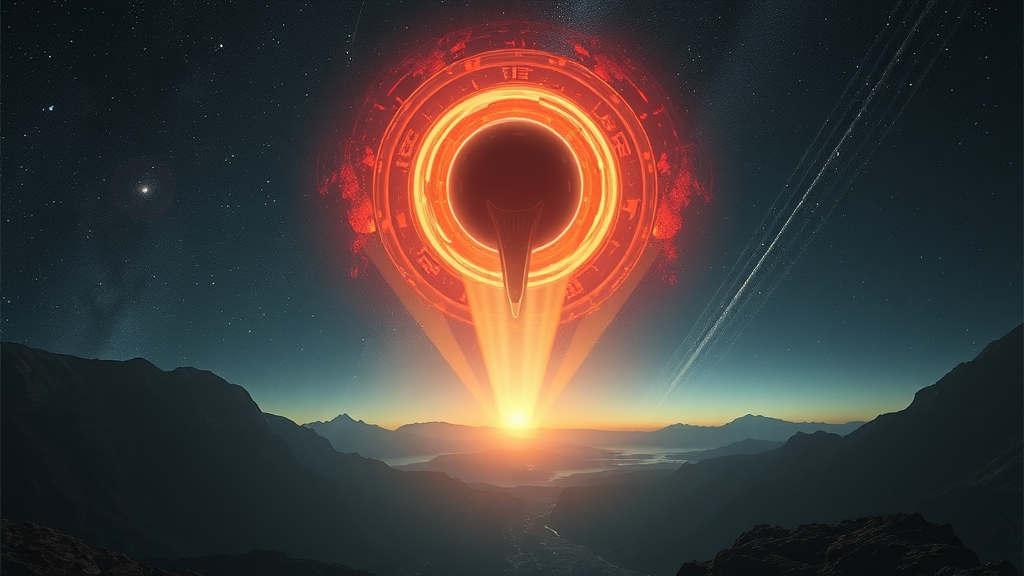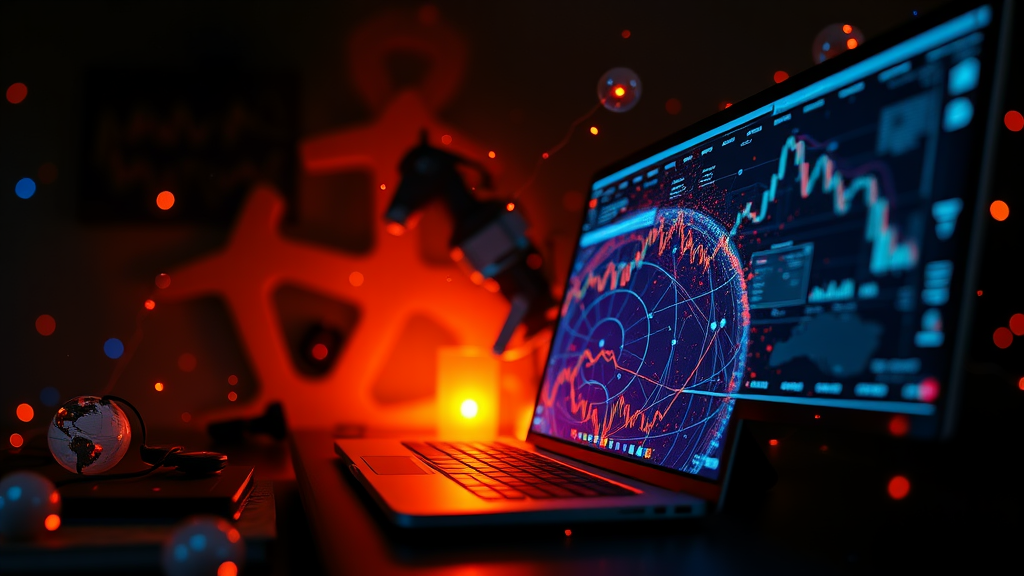YouTube Star Arrested – Internet Erupts Over Shocking Charges!

The Impact of a YouTube Star’s Arrest on Their Fanbase and Community
The sudden arrest of a YouTube star can send shockwaves through their fanbase and the wider online community. Fans often feel a deep connection with the personalities they follow, which can make the news of an arrest particularly impactful. It raises questions about the behavior of their idols and the values being modeled for young, impressionable viewers.
Following such events, we often observe a pronounced shift in how fans engage with the content creator they once admired. This can manifest in a variety of ways:
- Support and Defense: Some fans rally around the star, defending their actions or claiming that the arrest is a misunderstanding. These loyal supporters may flood social media with messages of solidarity and even encourage others to keep watching their videos.
- Disillusionment and Betrayal: Conversely, many fans feel a sense of betrayal when their idol is arrested. This often leads to a decline in viewership, as they struggle to reconcile the person they thought they knew with the accusations faced.
- Unfollowing and Disengagement: In extreme cases, fans might choose to unfollow the YouTube star, disengaging entirely from their content. This can significantly impact the star’s revenue, as many rely on sponsorships and ad views for income.
In addition to individual responses, the community at large can also react strongly to the arrest. Public dialogues often emerge on social media platforms, where fans and critics share their opinions. This can lead to heated debates about accountability in influential positions and the responsibilities of content creators.
Moreover, the media plays a significant role in shaping the narrative following an arrest. News outlets provide coverage of the charges, leading to wider discussions about the criminal justice system and social norms surrounding celebrity culture. The following points illustrate the potential impact on both the star and their community:
- Pandemic of Misinformation: Rumors and false narratives can spread quickly within marginalized communities, creating chaos and confusion. Fans often have to navigate through what is factual and what is speculative news.
- Pressure on the Platform: Platforms like YouTube may face increased scrutiny regarding their policies on content moderation and the behavior of their creators. This increases pressure to enforce stricter guidelines based on perceived moral expectations.
- Consequences for Brand Partnerships: Public fallout can lead to brands distancing themselves from the YouTube star. This could mean the loss of lucrative sponsorships and promotional opportunities, leading to significant financial repercussions for the creator.
Additionally, you may notice a shift in the type of content being produced post-arrest. Some stars might choose to create content addressing the situation directly, which can serve as an attempt to regain trust and quell speculation. This could lead to a more vulnerable or transparent approach, which can be refreshing for some audiences but might alienate others.
For many YouTube stars, the impact of an arrest can alter the trajectory of their career. Those who previously dominated the platform may find themselves in a precarious position, questioning whether they can return to their former glory. The psychological toll of such incidents can’t be understated, as stars grapple with public opinion, legal battles, and personal relationships.
We should not overlook the effect on younger fans who look up to these stars. They may struggle to understand the complexities of human behavior and accountability. Adults often have to step in to mediate discussions, providing context and addressing their feelings about the situation.
The implications of a YouTube star’s arrest stretch far beyond personal consequences. The ripple effects can reach communities, influence fan dynamics, and compel all involved to reconsider the responsibilities tied to online fame. As society continues to scrutinize the responsibilities of public figures, the conversation surrounding internet celebrity behavior and accountability grows increasingly critical.
While the shock of such news can initially lead to chaos and uncertainty, it is in these moments that communities can come together to reflect on broader issues at play. They may begin to examine the ethical responsibilities of influencers and take an active role in fostering healthy online environments, redefining what it means to be a fan in this digital age.
Social Media Reactions: How Fans and Followers Respond to Celebrity Legal Troubles
When a beloved celebrity faces legal troubles, the impact ripples through social media, drawing reactions from fans and followers that can range from shock to support, and even backlash. The way people respond to a celebrity’s arrest or allegations significantly reflects both their admiration for the star and their perceptions of justice. Understanding these dynamics can offer insight into our society’s relationship with fame, accountability, and social media communication.
Fans often take to platforms like Twitter, Instagram, and TikTok to express their feelings. The immediate reaction is typically a mix of disbelief and sadness, especially if the star has a positive public image. Hashtags trending around the incident can show how widespread the conversation is. For instance:
- #Team[StarName]: Supportive fans rally around the celebrity, posting messages of encouragement.
- #CancelCulture: Critics argue for the star’s accountability, calling for consequences for their actions.
- #JusticeFor[StarName]: Fans might spin the narrative, suggesting their idol is misunderstood or wrongly accused.
The emotional investment that followers have in their favorite celebrities means that reactions can become quite charged. Fans will often share their own legal opinions, referencing previous cases or arguing about the fairness of the media’s portrayal. Engaging in these discussions not only amplifies their connection to the celebrity but also builds a community around shared beliefs.
Another noteworthy aspect is the division that often arises among fans. For many, the initial shock leads to a realignment of loyalty. Here are some common reactions:
- Support and Defense: Many fans choose to defend the celebrity, often citing their past works and character. They may argue that everyone makes mistakes and urge others to reserve judgment.
- Outrage and Rejection: Conversely, some fans choose to distance themselves from the celebrity, expressing disappointment and calling for accountability. This can lead to discussions about moral responsibility in the era of celebrity culture.
- Neutral Observers: There are also individuals who prefer to remain impartial, observing the unfolding situation without taking sides. They often emphasize the need for due process.
Social media platforms provide an immediate forum for these reactions. Tweets, posts, and comments can spread like wildfire, often before all the facts are known. But this rapid response brings up significant issues regarding misinformation. Many fans may share unverified details or speculate on the circumstances surrounding the legal issues, prompting further debate and confusion.
The reaction to celebrity legal issues often highlights societal themes: the intersection of fame and accountability, the nature of public support, and the effects of cancel culture. For instance, when a YouTube star is arrested, a vast number of followers might immediately polarize in their opinions, reflecting their own values about justice and consequence.
To illustrate how varied these reactions can be, consider the following data reflecting social media sentiment after a major celebrity scandal:
| Sentiment | Percentage of Social Media Users |
|---|---|
| Supportive Comments | 40% |
| Critical Remarks | 30% |
| Neutral Observations | 30% |
This table highlights how divided fan sentiment can be, even after just initial reactions. The immediate dialogue often informs broader discussions in the entertainment industry about accountability and the ethical responsibilities of public figures.
Moreover, fans are not just passive observers. Many utilize their platforms to advocate for change, whether it’s by petitioning for accountability or supporting non-profits related to the issues raised by the celebrity’s legal troubles. This activism can be a powerful offshoot of celebrity scandals that perpetuates ongoing conversations about societal justice.
Through the lens of social media, followers transform into agents of influence, using their voices to shape narratives around celebrity behavior and legal accountability. As the internet continues to react to these situations, it becomes clear that the relationship between fans and celebrities is complex, fueled by emotions, community dynamics, and ongoing social discourse.
The ongoing dialogue fostered by these incidents reinforces the vital role of social media in shaping public perception and sentiment. As situations evolve, watching how these discussions progress will provide deeper insight into the changing landscape of celebrity culture.
The Role of Influencers in Shaping Public Perception of Crime and Justice
In recent years, the rise of social media influencers has transformed how information, especially regarding crime and justice, is disseminated and perceived by the public. With millions of followers, these influencers hold significant power in shaping narratives and opinions. Their platforms have become vital spaces for discussing sensitive topics, including crime. This article explores how influencers impact these public perceptions and the implications for society.
Influencers often use their platforms to share personal stories, opinions, and news about crime. They can highlight incidents that traditional media might overlook, bringing attention to underreported cases or systemic issues within the justice system. By doing so, they educate their audience on important matters, fostering empathy and understanding.
Some crucial roles that influencers play in shaping public perception of crime and justice include:
- Raising Awareness: Influencers can amplify voices from marginalized communities, shedding light on crimes that disproportionately affect them. This can lead to increased public awareness and calls for change.
- Challenging Stereotypes: Many influencers challenge prevailing narratives around race, gender, and crime. They help to deconstruct stereotypes, promoting a more nuanced understanding of the issues at hand.
- Driving Conversations: Influencers often initiate discussions around controversial topics. These conversations can engage their followers in meaningful dialogue about crime and the justice system, increasing community involvement and advocacy.
- Spreading Misinformation: Conversely, the potential for misinformation is a significant risk. Influencers may unintentionally spread false narratives or exaggerate facts, leading to public panic or misinformed opinions about crime.
One prime example of this influence is how certain cases have gone viral, not just for their content but for the voices sharing them. Platforms like Instagram, TikTok, and YouTube allow influencers to share video and audio testimonials that give a human face to crimes, making the issues feel more relatable and urgent. Viewers often feel personally connected to these stories, leading to greater emotional responses and calls for justice or reform.
Additionally, influencers also utilize storytelling techniques to convey complex legal issues in a digestible format. For instance, they may break down legal jargon, explain court cases, or discuss new legislation affecting crime and justice. This makes the information accessible to a broader audience, allowing more people to understand and engage with the topic.
The impact of influencers on crime perception can be analyzed through various social media metrics. For example:
| Platform | Influencer Reach (in million) | Engagement Rate (%) |
|---|---|---|
| 500 | 2.5 | |
| YouTube | 200 | 4.5 |
| TikTok | 700 | 6.2 |
This table highlights the staggering reach of influencers across different platforms and their engagement rates, signifying the potential impact they can have. With influencers’ increasing popularity, they become conduits for shaping narratives around crime, which is both powerful and concerning.
The relationship between influencers and traditional media also showcases shifts in public perception. An incident may receive significant coverage in mainstream news, but it’s often the influencer commentaries that spark viral trends. This indicates a growing trend where audiences prefer the human touch and relatability of influencers over conventional news anchors.
Despite their power, influencers must navigate their roles carefully. They are not legal experts, yet their opinions can sway public sentiment. It’s essential for them to verify facts before sharing them, as misinformation could lead to public misjudgments about crime and justice. Engaging with qualified experts, fact-checking, and encouraging followers to seek information from reputable sources are vital responsibilities for influencers.
Influencers continue to play an undeniable role in shaping the public perception of crime and justice. Their ability to create awareness, spark conversations, and foster community engagement offers a unique lens through which society can address these pressing issues. However, with that influence comes a responsibility to present accurate and well-rounded information. As they evolve, influencers may significantly shape the future discussion surrounding crime and justice in today’s society.
Understanding the Legal Framework: What Happens After a YouTube Star is Arrested?
The arrest of a YouTube star sends ripples through their fanbase and the media alike. But what unfolds after those handcuffs click? Understanding the legal framework can provide clarity on this complex process. When a YouTube star, known for their substantial online presence, faces legal trouble, various steps follow that impact their career, fans, and the legal system.
First and foremost, it’s crucial to recognize that the legal system varies significantly from one jurisdiction to another. However, certain processes are standard across most regions, regardless of whether the individual is a celebrity or an average citizen. Common steps include:
- Arrest and Booking: When a YouTube star is arrested, they are taken into custody and booked. This process typically includes fingerprinting, photographing, and entering personal information into a police database.
- Initial Appearance: The arrested individual usually faces a judge within 48 hours. This appearance is vital, as the judge will inform the accused of the charges and set bail if applicable.
- Bail Process: Depending on the nature of the charges and the individual’s criminal history, bail may be granted. For high-profile cases, media coverage of the bail setting may add pressure on the judicial system.
Next, the legal proceedings continue with arraignment, where the YouTube star formally pleads guilty or not guilty. This pivotal moment often defines the trajectory of the case. If they plead not guilty, the case proceeds to trial, an event that can cause significant public interest and media coverage, particularly given the star’s influencer status.
Throughout the legal process, the influence of public opinion cannot be overlooked. Social media platforms explode with reactions, support, and criticism from fans and the public. This outpouring of thoughts can lead to a potential jury pool that is already informed—or misinformed—about the case, complicating the judicial proceedings.
Additionally, a YouTube star’s legal battles can impact their brand and future content creation. Here’s how:
| Impact on Career | Description |
|---|---|
| Loss of Endorsements | Brands often reconsider partnerships with individuals facing serious charges, leading to a financial downturn. |
| Content Monetization | Platforms may suspend monetization options for creators involved in legal issues, affecting their income. |
| Fan Reactions | Depending on the charges and public sentiment, some fans may withdraw support, while others might rally in defense. |
Once a trial commences, the legal rights of the accused take center stage. The defendant can present evidence, call witnesses, and employ various legal strategies in their defense. The outcome can range from acquittal to sentencing, depending on the severity of the charges and the evidence presented.
If found guilty, the consequences can vary widely. Fines, community service, or even prison time might ensue. The long-term ramifications cannot be understated. A conviction could lead to loss of reputation, change in public perception, and potential legal consequences that extend beyond immediate sentencing.
In cases where the charges are serious, a YouTube star might opt for a plea deal. This often involves pleading guilty in exchange for a lighter sentence or reduced charges. Such negotiations are common in legal systems and can allow the accused to avoid the risks of going to trial.
In recent years, the concern of mental health and public pressure has significantly emerged in discussions surrounding high-profile arrests. The unique challenges faced by celebrities impact their psychological well-being. Prolonged legal battles can lead to stress and anxiety, which may, in turn, affect their performance as content creators and their public image.
As observers of this unfolding drama, it’s essential to remember that behind the internet persona, YouTube stars are individuals facing life-altering circumstances. The legal proceedings are complex and can determine not only their future but also the health of their brand and fan relationships.
YouTube stars arrested under shocking circumstances remind us of the fragility and unpredictability of fame in the digital age. Understanding what happens next requires awareness of the legal framework and the impact it has on every aspect of the star’s life.
The Ripple Effect: How Scandals Affect the YouTube Ecosystem and Content Creation
The world of YouTube is vibrant and ever-evolving, marked by its stars and trends. However, when scandal strikes, it sends shockwaves through the entire ecosystem, affecting not only the creators involved but also their audience, sponsors, and the platform itself. This ripple effect can redefine how content is created, consumed, and monetized.
Scandals involving prominent creators often make headlines and unleash a surge of discussion within the community. You might be surprised to learn just how wide-reaching the consequences can be. Let’s explore various dimensions of this phenomenon.
Impact on Viewer Trust
When a beloved YouTube star is arrested or involved in controversy, it can shatter the trust between viewers and creators. Fans often feel betrayed, leading to divided opinions. Some viewers may choose to distance themselves from the content creator entirely, while others may remain loyal despite the allegations against them. This can be broken down as follows:
- Loss of Trust: Fans might feel deceived, leading to mass unfollows.
- Divided Community: Supporters vs. detractors create tension within fan bases.
- Erosion of Loyalty: Some viewers stop supporting creators financially via subscriptions or merchandise.
Changes in Content Direction
Following a scandal, many creators find themselves at a crossroads. They may either pivot their content to distance themselves from the controversy or double down, using the incident as a focal point for their next videos. Notable strategies include:
- Content Apology: Many creators choose to address controversies directly, explaining their side of the story and seeking forgiveness.
- New Content Avenues: Some may explore different themes or genres to regain viewers, such as focusing on transparency or social issues.
- Collaborative Projects: Teaming up with other creators can help to rebuild credibility by associating with established names.
The Role of Sponsorships
Another significant aspect is how scandals influence sponsorship deals. Brands often perform due diligence before partnering with influencers, and when allegations arise, they could pull their sponsorships to avoid damaging their reputation. This results in:
- Immediate Termination: Sponsors may cut ties swiftly to mitigate backlash.
- Future Hesitation: Brands become more cautious in selecting partners, focusing on those with a pristine image.
- Impact on Revenue: Diverted funds affect both the creator’s income and the marketing landscape.
Shifts in Audience Engagement
Both viewers and platforms respond to scandal in various ways, which considerably shifts engagement levels. Typically, these shifts manifest through:
- Increased Comments and Discussion: Scandals spark dialogue among viewers, often generating more comments than regular content.
- Cross-Platform Engagement: Audiences discuss controversies not just on YouTube but also on Twitter, TikTok, and other platforms, amplifying the discussion.
- Increased Viewership of Controversial Content: Paradoxically, scandals can lead to spikes in views for the content related to the incident.
The Broader Implications for Content Creation
The ramifications of scandals extend beyond individual creators, influencing the YouTube ecosystem as a whole. Here are some significant trends that typically follow:
- Policy Changes: YouTube may reevaluate its policies regarding creator behavior, making moves to improve community guidelines.
- Emerging Creator Responsibility: New creators may adopt more ethical and careful practices to avoid pitfalls that lead to controversies.
- Market Trends: As viewers become more skeptical, content focusing on authenticity and ethical issues may gain popularity.
In wrapping up the discussion, it’s crucial to recognize that the fallout from scandals can lead to significant changes in the YouTube landscape. While these events may initially seem damaging, they also open doors for growth, reflection, and a newer, more responsible generation of content creators. The ripple effect is real, and its impacts will continue to shape the future of online content creation.
Conclusion
The arrest of a YouTube star reverberates far beyond the individual involved, leaving a significant mark on their fanbase and broader community. Fans often experience a whirlwind of emotions, ranging from shock to betrayal. This tumultuous reaction showcases the deep connection between influencers and their followers, where a celebrity’s missteps can lead to heated debates and division among once-unified supporters.
Social media platforms quickly become a battleground for opinions, with fans voicing their feelings about their idol’s legal troubles. Some may rally in support, expressing hope for redemption, while others might denounce their actions. This varied response reflects a shift in public perception, as influencers wield remarkable power to shape narratives surrounding crime and justice. Their platforms can either promote accountability or perpetuate harmful stereotypes, depending on how they address their circumstances.
Understanding the legal processes that follow such arrests is crucial. Fans often look to the legal framework to comprehend the implications of the charges, which can involve lengthy trials and investigations that affect the YouTube star’s career trajectory. As these high-profile cases unfold, the ripple effect on the YouTube ecosystem becomes evident. Content creators may feel pressure to adapt their messaging, aligning with or distancing themselves from the scandal.
Ultimately, the intertwining of fame and accountability creates a complex dynamic within the YouTube community. As scandals arise, they serve as a reminder of the responsibility influencers bear and the profound impact their actions can have on fans, peers, and the platforms they utilize. The road ahead will require not only legal navigation but also healing both for the affected star and the community at large.



